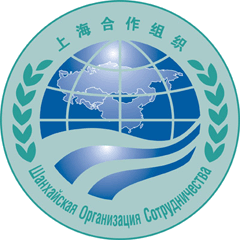
Home...
About us...
Legal status...
People...
Projects...
Search this site
...
Reviews...
Podcasts...
Publications...
Media...
Events...
Support our work...
About this site...
Privacy policy...
Contact us
You are here: Home > Publications > SCO sends a signal that Russia has overplayed its hand

Russian President Medvedev expected to return from the Annual Summit of the Shanghai Cooperation Organisation ["SCO"] (a treaty organisation that includes Russia, China, Kyrgyzstan, Tajikistan, Uzbekistan, and Kazakhstan) in Dushanbe, Tajikistan, with a clear message of support for Russia's actions in Georgia.
But Russia failed to get the full-throated support it had hoped for.
"The member states of the SCO express their deep concern in connection with the recent tension around the issue of South Ossetia, and call on the relevant parties to resolve existing problems in a peaceful way through dialogue, to make efforts for reconciliation and facilitation of negotiations" the summit's final joint declaration said.
The SCO is often referred to as the NATO of the CIS, though this comparison is somewhat stretched. When founded in 2001 one of its main purposes was to create cooperation between its members in respect of counter-terrorism operations. It was very supportive of Russia's actions in Chechnya, and supportive of the Uzbek government's crackdown at the time of the Andijon uprising in May 2005. But it grew out of an organisation called the Shanghai Five, which was established in 1996, a precursor institution, which was meant to create trust and operate as a mechanism for disarmament in the region. In 2005 Pakistan, Iran and India were given observer status, and it looks as if Russia is looking to both widen and deepen the organisation to create an alliance that is modelled after NATO. This is not likely to be China's preferred path for the SCO, and is highly unlikely to support membership for Iran, at least not in the absence of a US rapprochement with Iran.
There will be deep concern for Russia's approach, especially the recognition of Abkhazia and South Ossetia as independent states.
China has been very clear on its anti-separatist line, given its own Uighur population, and many of the SCO states face similar secessionist problems within their borders. Thus they will not be too pleased about the establishing of such precedents.
They are likely also to be concerned about Russia's overtly military stance, and questioning what threat this might pose in future.
We have suggested that Russia may have overplayed its hand in Georgia, and the SCO summit may be the first opportunity Medvedev will have had to reflect on this.
Russia clearly sees the SCO as an important alliance and hoped to augment its cooperative activities, but a desire to score-settle in respect of Kosovo, by giving recognition to Abkhazia and South Ossetia, looks as if it has made fellow members of the SCO cautious and mistrustful of a resurgent Russia.
Transatlantic & Caucasus Studies Institute is a working name of The Transatlantic Institute.
© The Transatlantic Institute 2004-2026. Registered charity number 1108682.